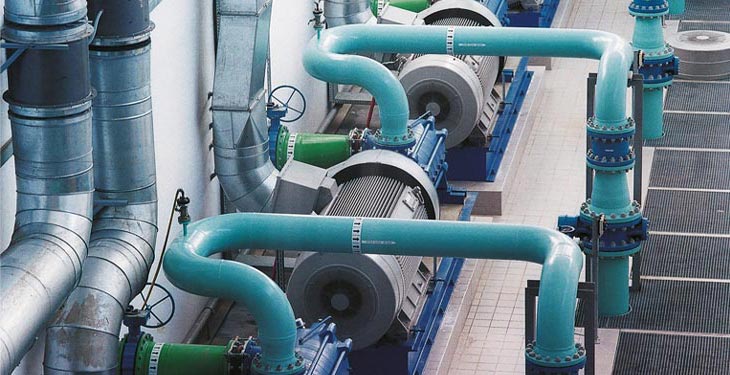In many industrial applications, maintaining optimal temperature control is essential for efficiency and safety. Industrial Circulating Cooling systems play a crucial role in ensuring that operations run smoothly by regulating the heat generated by machinery, processes, and equipment. These systems are not just about cooling down machinery; they are integral to the overall longevity and functionality of various industrial processes. With industries becoming more dependent on technology, the demand for effective and reliable cooling solutions is higher than ever.
One of the primary applications of industrial circulating cooling systems is in manufacturing environments where heat accumulation can negatively impact both product quality and equipment performance. For example, in industries like metalworking, plastic molding, and chemical production, machinery and processing equipment are exposed to extreme temperatures. An efficient cooling system ensures that these high-heat areas are controlled, reducing the risk of equipment failure and extending the lifespan of critical machinery. As a result, downtime is minimized, leading to more consistent production and less unexpected maintenance.
The importance of industrial circulating cooling goes beyond just temperature management. Many processes require specific temperature ranges to maintain product quality or ensure proper operation. For instance, in semiconductor manufacturing, precise temperature control is essential for the success of the production process. Cooling systems must be adaptable and responsive to changes in heat load, and modern circulating cooling solutions are designed to handle these dynamic conditions effectively. The flexibility of these systems ensures that industrial plants can maintain steady operations, even when production levels or environmental conditions fluctuate.
Beyond performance, the integration of circulating cooling systems can lead to significant energy savings. Today’s cooling solutions incorporate advanced technologies such as variable-speed pumps and high-efficiency heat exchangers, which optimize energy use while maintaining effective temperature regulation. This focus on energy efficiency is not only beneficial for operational cost reduction but also supports sustainability initiatives by reducing the overall carbon footprint of industrial operations. Manufacturers are increasingly choosing systems that provide long-term savings, making industrial circulating cooling solutions both an investment in operational efficiency and environmental responsibility.

The materials used in these systems are equally critical. Industrial circulating cooling systems are built to withstand demanding environments. High-quality, corrosion-resistant materials such as stainless steel or titanium are often used to construct key components like pumps, pipes, and heat exchangers. These materials ensure the durability of the system, even in harsh conditions, whether it’s exposure to high humidity or chemical exposure. By selecting the right materials, manufacturers can avoid common issues such as corrosion, leaks, and system failures, ensuring a long and trouble-free service life.
The scalability of industrial circulating cooling systems also makes them appealing to a wide range of industries. These systems can be customized to meet the unique cooling requirements of various applications, whether that’s cooling large machinery in a power plant or maintaining a specific temperature for research equipment. Their versatility means that businesses can implement these systems in everything from small-scale operations to large, complex manufacturing facilities. This scalability ensures that companies can invest in cooling solutions that are both cost-effective and efficient, regardless of their size or operational needs.
As industries continue to push for greater automation and higher productivity, the role of circulating cooling systems becomes even more critical. Many modern systems are equipped with smart technology, allowing for remote monitoring and diagnostics. This means that any fluctuations or issues can be detected early, enabling prompt maintenance and preventing costly downtime. Such innovations in industrial circulating cooling ensure that facilities are not only efficient but also agile, capable of adapting to changing operational conditions and technological advancements.
Choosing the right industrial circulating cooling solution can have a profound impact on a business’s operational efficiency, equipment lifespan, and energy consumption. With the right system in place, manufacturers can rest assured that their equipment is protected from heat-related damage, that their energy consumption is optimized, and that they are contributing to sustainability goals. By investing in high-quality, reliable circulating cooling systems, businesses are making a smart decision that supports both their immediate operational needs and long-term success.
 En
En
 عربى
عربى 中文简体
中文简体

